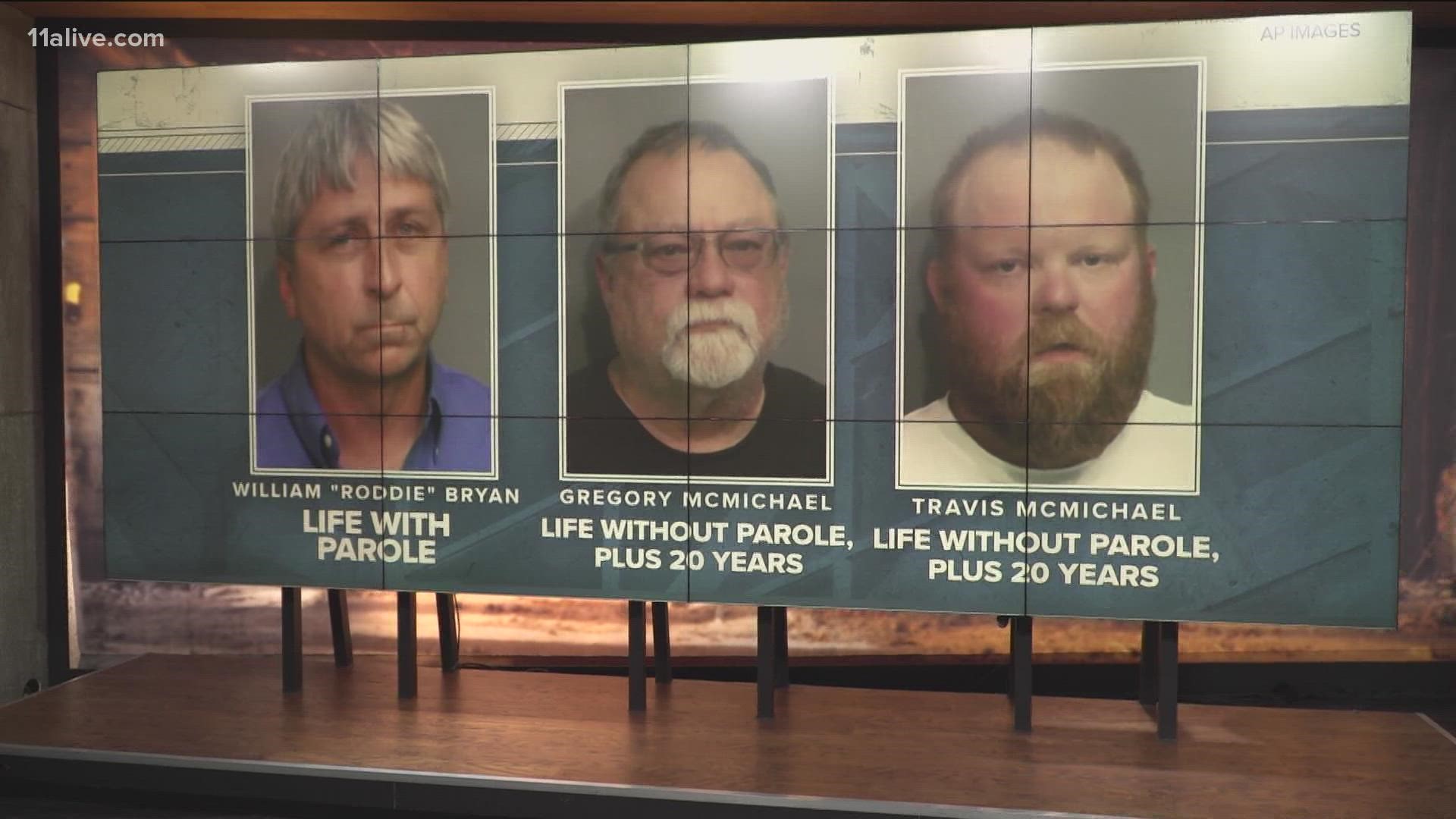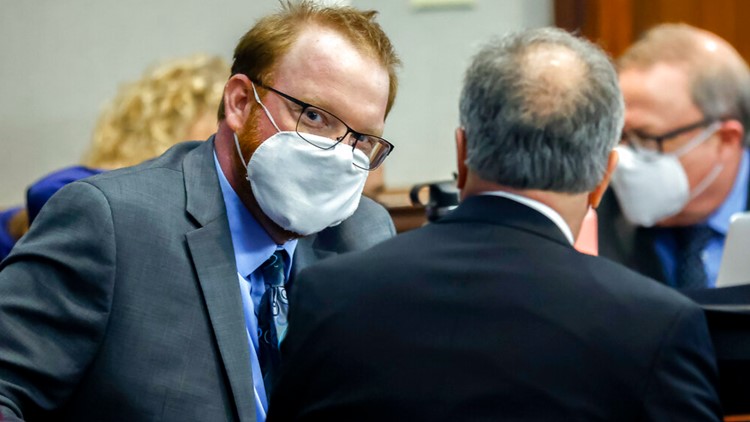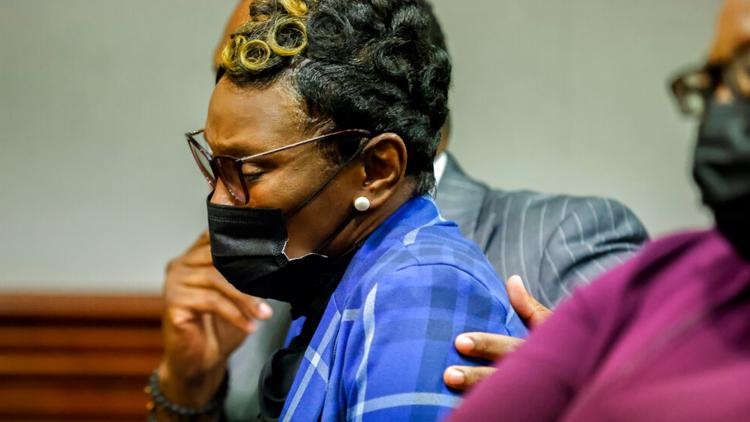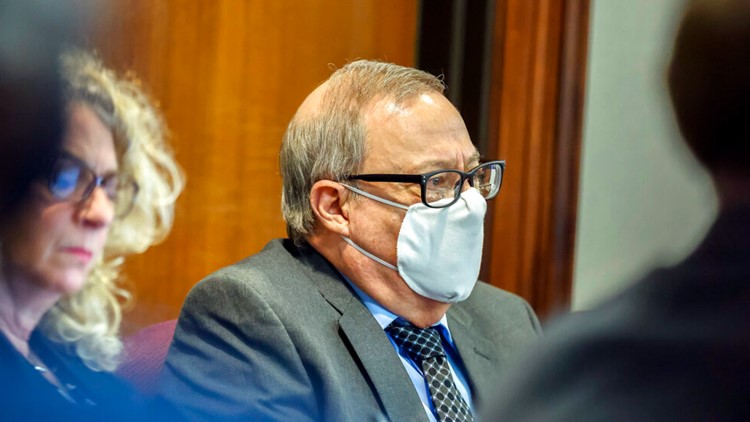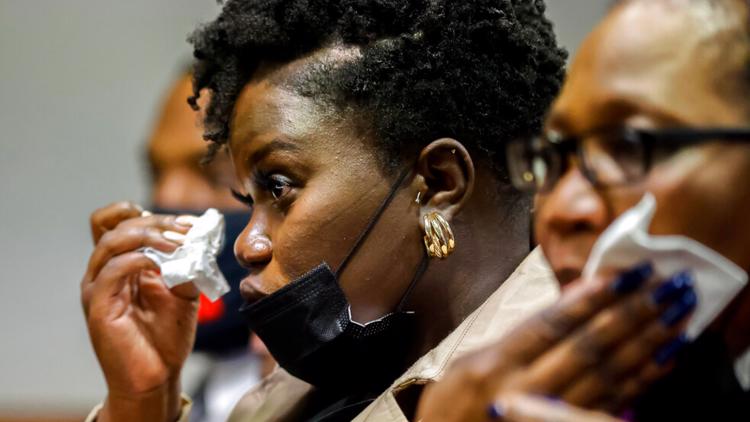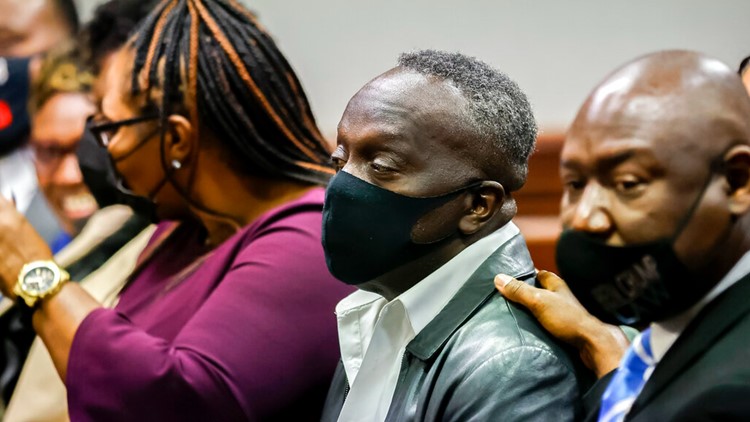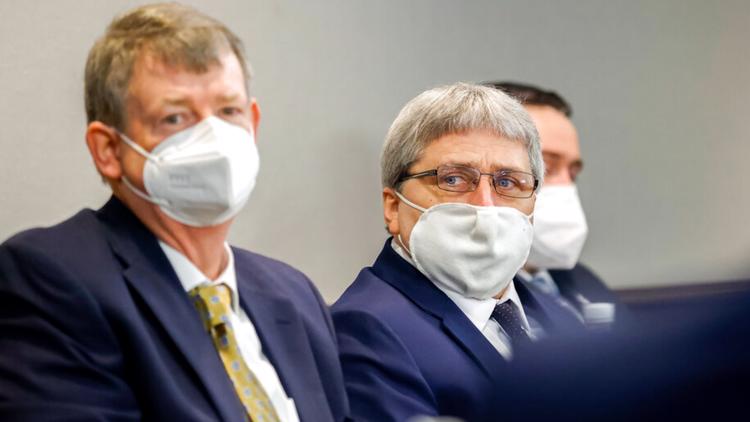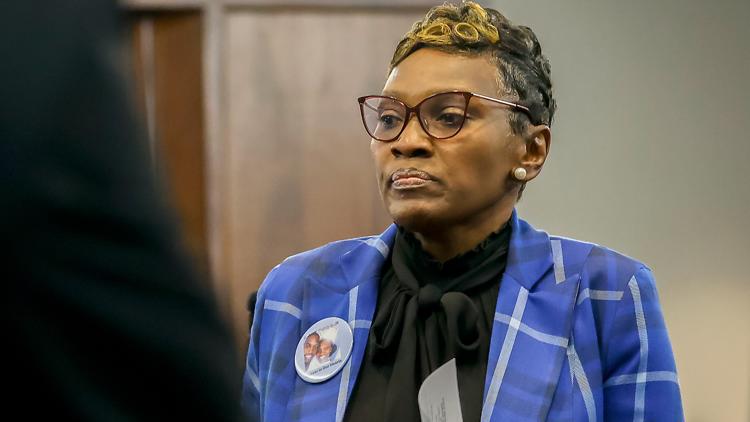ATLANTA — One at a time, in court, Friday, Judge Timothy Walmsley addressed each defendant convicted of killing Ahmaud Arbery and announced their prison sentences.
"Life plus 20 (years)," Walmsley told Travis McMichael. He uttered similar words to Travis' father, Gregory McMichael. And Walmsley ruled that the McMichaels would have to serve those life terms without the possibility of ever getting out on parole.
He turned to their neighbor, William "Roddie" Bryan, to announce his sentencing.
"Mr. Bryan--life with the possibility of parole," the judge said.
The three men were convicted in November of murdering the 25-year-old while he was jogging in their neighborhood.
Travis McMichael was the triggerman and the other two were convicted of murder, as well, because of their participation.
The sentencing means that, for the murder of Ahmaud Arbery, only Bryan will have the chance of one day leaving prison if granted parole once eligible. Travis and Gregory McMichael will never leave prison under the judge's sentence.
The sentences are in line with the requests made by prosecutor Linda Dunikoski in court. Dunikoski is a senior assistant district attorney in the Cobb County District Attorney's Office, who was assigned the case in Arbery's death back in 2020.
"When you take another person's life it can't be undone, it can't be taken back, there is no do-over. It is final. That means caution must prevail," Dunikoski said in her statement to the judge during the hearing.
Dunikoski told 11Alive News Friday afternoon that, after nearly two years, Arbery finally has justice.
"The men who murdered him have been held accountable," Dunikoski said. "Not only have they been held accountable by twelve members of a jury of their peers, here in Glynn County, but then they were sentenced by a fair and impartial judge."
In February of 2020, Gregory noticed Arbery running through the McMichaels' Satilla Shores neighborhood in Glynn County. Evidence presented in court shows Gregory yelled to Travis to grab their guns, the pair then jumped in their pickup truck and chased down Arbery.
The McMichaels later insisted that they thought the man they saw running was the same man who they suspected might have been committing property crimes in their neighborhood. They had no evidence or proof that Arbery had committed any of those crimes, and police and prosecutors, later, never found any evidence or proof.
Bryan, in his own pickup truck, helped corner Arbery before Travis shot and killed the young Black man.
The McMichaels and Bryan are all white.
The McMichaels claimed they were attempting to make a citizen's arrest.
"Vigilantism always goes wrong," Dunikoski argued in court Friday. "You wait for the professionals to show up. The professionals who are in marked cars. The professionals who have something to lose."
Speaking with 11Alive News after the sentencing, Dunikoski said there is a clear difference between responsible "neighborhood watch" vigilance, and being illegal vigilantes. Neighborhood watch volunteers, she said, are good witnesses for police, and that's it.
"And that’s what 'neighborhood watch' is all about, 'see something, say something.'" she said. "But say it to law enforcement.... There is no place, as the judge said, for taking the law into your own hands. Which is what vigilante justice is, and that’s what the McMichaels and Mr. Bryan did."
Travis's and Gregory's attorneys argued their clients should receive life sentences with the possibility of parole because, the attorneys said, they can be rehabilitated after serving time in prison.
"We are asking the court to reserve the harshest possible sentence under the law for those who deserve it," said Robert Rubin, attorney for Travis McMichael.
"Today the defendants are being held accountable for their actions here in Superior Court," Walmsley said from the bench just before imposing the sentences.
Arbery "left his home, apparently, to go for a run, and he ended up running for his life.... Taking the law into your own hands is a dangerous endeavor," Walmsley said.
RELATED: Arbery's dad: McMichaels still able to sit next to each other. Something he'll never do with Ahmaud
Kevin Gough, representing Bryan, argued his client should receive a lesser sentence due to his having a different role in the crime.
"Mr. Bryan isn't the one who brought a gun. He was unarmed and I think that reflects his intentions and reflects a significantly lesser state of culpability," Gough said.
Walmsley agreed to some extent. He quickly added that without Bryan's actions and using his truck to box in Arbery, the shooting may not have happened, which supports the murder conviction. The judge explained Bryan's unique role is the reason he received a sentence of life with the possibility of parole, unlike his co-defendants.
Walmsley said the McMichaels and Bryan assumed Arbery was guilty of something, with no proof, setting in motion the chase and the fatal shooting.
"In assuming the worst in others we show our worst character," Walmsley said. "Assuming the best in others is always the best course of action. And maybe those are the grand lessons from this case."
The three men will be back in a courtroom in a month. On Feb. 7, all three defendants are set to be tried in federal court on hate crime charges.
Photos | Sentence hearing for 3 men convicted of killing Ahmaud Arber
In a federal indictment, the defendants are accused of targeting Arbery because of his race.
Before Friday's sentencing hearing, Attorney Lee Merritt, representing the Arbery family, told reporters outside the courthouse about a potential plea deal in that federal criminal case.
Merritt described how prosecutors with the U.S. Department of Justice recently approached the Arbery family with a potential plea deal. It would have called for the McMichaels to serve 30 years for the federal charges they face in exchange for an admission of guilt, "if they would admit that they were, in fact, motivated by hate and give a significant statement concerning that in open. And we mulled it over, it certainly would have represented a historic outcome," Merritt said.
Merritt said that the family ultimately didn't support the deal. Their decision keeps the scheduled federal hate crimes trial on the calendar.
Cobb County District Attorney Flynn Broady, whose office was responsible for prosecuting the state's murder case in Glynn County, told 11Alive News that the past 23 months since Arbery's murder have shown that the community is "tired of hate.... People want justice, people want their communities to be representative of who they are and not the hate that we’ve seen so much of lately.... And in this trial, we focused on right and wrong, and not the labels of Black and white, and I really believe that was part of the reason why we were able to get justice in this case."
Several civil rights activists, in a rally outside the Glynn County courthouse after the sentencing, said the life prison terms for the three men are not enough, and they hope the federal hate crimes trial will result in convictions--and tougher sentences.
"It’s not over," said civil rights activist and attorney Malik Zulu Shabazz. "Because in this (upcoming federal) trial the death penalty is at stake for these defendants.... And we are all behind them receiving the death penalty and the death sentence for what they have done."

